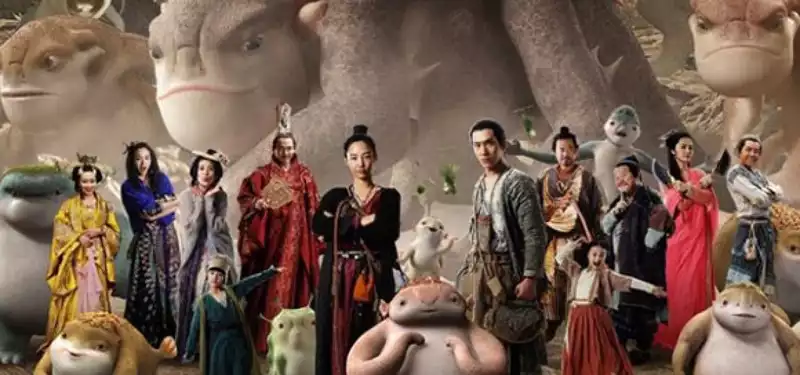Aug 26, 2015
Raman Hui was not prepared for the success of the "Monster Hunter" monster
Now the highest-grossing Chinese film of all time, Raman Hui's live-action/CGI hybrid Monster Hunt is making waves that stretch way past Asia.
“Monster Hunt” director Raman Hui. (Photo: “Time Out HK.”)As part of our Asia coverage, Cartoon Brew has been on the Monster Hunt beat - which is hard not to do when Hui's debut also happens to be China's second highest-grossing film ever, behind the $391 million gross of Furious 7.
“[T]he success was a complete surprise,” the 52-year-old director Hui told the Hollywood Reporter. “Before Monster Hunt came out, the projection for total box office was going to be around RMB 400 million ($64.41 million). With the budget and the advertising costs we were looking at losing money. I was even worried that it wouldn't make the projection. And then, on the first day it made RMB 100 million ($16 million) in half a day, I was just shocked.”
The Hong Kong-born Hui is no stranger to Hollywood, having supervised animation for Pacific Data Images on Batman Forever, and helmed animated shorts and features for Dreamworks like Kung Fu Panda: Secrets of the Furious Five and Shrek the Third. This starry resume was well-known to his former DreamWorks boss Jeffrey Katzenberg, who rang up Hui to celebrate Monster Hunt's monster opening. Animation and merchandising executives outside of Hui's resume are perhaps also noting that Monster Hunt is an original feature free of previously existing intellectual property, and product lines, that has currently hauled in over $365 million.
They would be a step ahead of Monster Hunt's merchandisers, who actually didn't have time to dream up any actual merchandise to support the film's release. But Hui has a plan for Monster Hunt's inevitable sequel.
“I'll tell everybody involved with the film, 'You didn't listen to me the first time, but next time we'll have the toys ready!'”
Hui and company will probably also have a plan for a Western release, unlike Monster Hunt. Although Western artists and fandom have been trading exports and influence with Asian culture and entertainment for decades - for example, Monster Hunt producer Bill Kong was a major force behind Ang Lee's phenomenal crossover Crouching Tiger, Hidden Dragon, as well as Jet Li's operatic Hero - Hui still thinks Monster Hunt has jokes some Americans just won't understand.
“When we made the film we made it for a Chinese speaking audience, there are jokes in the movie I know Americans won't understand, but there are universal jokes,” Hui said. “I haven't looked at the movie from an American point of view yet, but I probably should do that soon. A big part of the story is universal; after all, a guy getting pregnant and giving birth is funny to anyone.”
With this summer's success of Monster Hunt and another fully-animated feature Monkey King: Hero is Back, there's little doubt that the Chinese animation industry is on the rise. But how much can it grow-
Hui thinks that Chinese animation producers could eventually be the market leader some day. “You just have to give it more time,” he said in a Time Out Hong Kong interview last month. “Technical skill is not as important as content. I think one issue is that the Chinese animation industry tends to make movies for very young kids. But when we were making Shrek, Madagascar, Puss in Boots, we never worried about the children. We made it for adults. If adults don't find it funny, we don't think kids will either.”




Post your comment